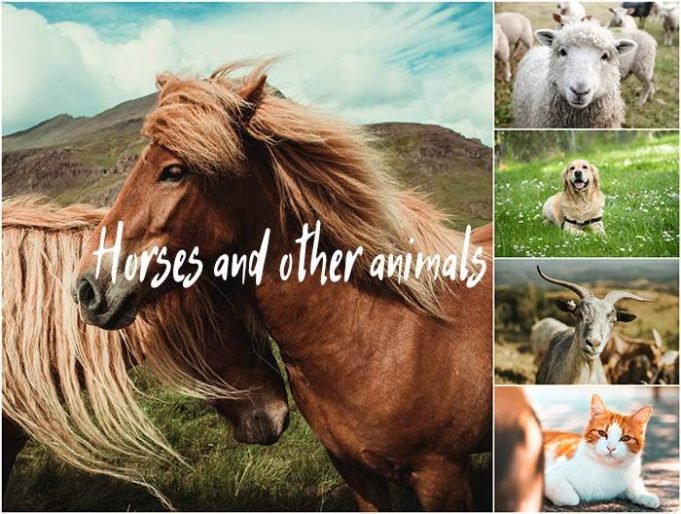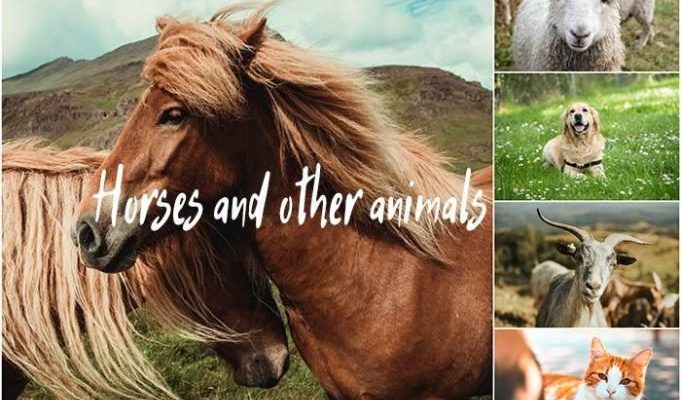
Imagine hosting a dinner party. You wouldn’t invite all your friends without considering who gets along with whom, right? The same applies to horses and other farm animals. Different species have unique social structures and behaviors. This article will explore how horses fit into the farmyard ecosystem and some tips to make sure everyone plays nice.
Understanding Horse Behavior
Before diving into how horses interact with other farm animals, let’s unpack a bit about horse behavior. Horses are naturally herd animals, which means they thrive in social settings. They have a pecking order and often establish strong bonds with their companions—whether those companions are horses or other farm animals. Understanding this social nature is key to predicting how they might react to different animals.
For example, horses often signal their comfort through body language. A relaxed horse will have its head low, ears slightly forward, and will stand with a loose stance. If a horse feels threatened or uneasy, you might see the opposite—a tense posture, pinned ears, and an alert stance. Learning to read these cues can help you manage interactions better.
You might be wondering if a horse’s personality plays a role in how well they get along with other species. Absolutely! Some horses are naturally curious and easygoing. Others may be a bit more aloof or dominant. This variability is why introductions and monitoring are crucial.
Common Farm Animals and Their Compatibility with Horses
When thinking about farm animals, the most common ones that interact with horses include cows, goats, sheep, and chickens. Each species has its quirks and temperaments, which can influence how well they get along with horses.
1. Cows: Typically, horses and cows can coexist quite well. They both have a herd mentality, which means they understand social hierarchies. However, it’s important to supervise their interactions, especially during feeding times. Cows can get a bit possessive over food, and a hungry horse might try to muscle in, leading to potential conflicts.
2. Goats: Goats are playful and curious creatures. They often initiate play, which can intrigue horses. However, be cautious—goats can also be quite mischievous! A goat’s head-butting may not sit well with a horse, especially if the horse feels pressured. Supervised playtime can help establish a friendly relationship.
3. Sheep: Generally, sheep are more timid and cautious compared to horses. They usually tend to avoid confrontations. As long as the horse is calm, interactions can be peaceful. However, a horse that’s too rambunctious might scare sheep away.
4. Chickens: Chickens can be a bit tricky. They often wander and peck at the ground, which might make a curious horse want to poke around too. As much as horses usually don’t mind chickens, they might accidentally harm them just by being curious. Make sure there’s space for chickens to scuttle away if the horse gets too close.
Creating a Harmonious Environment
If you’re new to having horses alongside other farm animals, creating a balanced environment is essential. Here are some tips to promote harmony:
– Space Matters: Ensure each species has enough room to roam. Horses need a decent amount of space to gallop and play, while smaller animals require areas where they can retreat if they feel overwhelmed.
– Feeding Areas: Separate feeding zones can prevent squabbles. If all animals eat in the same area, there’s a higher chance of competition and stress, especially with food-motivated animals.
– Supervised Introductions: When introducing a new animal to the farm, always supervise their interactions. Start with short meetings and gradually increase their time together as they become more comfortable.
– Socialization: Mixing animals can foster friendships, but be sure to monitor interactions. Horses can bond with goats, while cows might enjoy the company of a horse. Pay attention to how they react to one another.
Signs of Stress and How to Handle Them
Even in a well-planned environment, tensions can rise. Recognizing the signs of stress in horses and other farm animals is crucial for keeping the peace.
– Body Language: Horses exhibiting signs of stress may stomp their feet, whinny, or become unusually rigid. Look out for wide eyes or pinned ears.
– Avoiding Interactions: If a horse consistently avoids a specific animal, it’s a good idea to reassess their compatibility. Allow them space rather than forcing interactions.
– Agitation Among Other Animals: If you notice that chickens are more skittish or goats are avoiding the horse, it might be a sign that the interactions aren’t as harmonious as you hoped.
In such cases, it’s important to step in. Create physical barriers if necessary, and always allow the animals their space to recuperate.
The Benefits of Mixed Species Living
So why go through the effort of integrating horses with other farm animals? There are several perks to having a mixed-species environment.
– Natural Pest Control: Chickens love to forage. They can help keep the area free of pests that might bother your horse or other farm animals.
– Reduced Boredom: Horses can become bored when isolated, leading to behavioral issues. Having other animals around provides stimulation and companionship.
– Enhanced Learning Experiences: Each animal teaches the others essential survival skills and social behaviors. Horses can learn to be cautious from other animals, while smaller animals may gain confidence from larger ones.
In conclusion, yes, horses can get along with other farm animals, but it requires some attention and care. Just like a good friendship, it takes time to build trust and understanding. Recognizing each animal’s behavior and needs is essential for creating a harmonious farmyard. So, whether you’re a seasoned farmer or just starting out, embracing the diverse personalities of your farm animals can lead to a vibrant, lively environment. Remember, every animal has its own story, and with a little patience, they can all find their place under the sun together. Happy farming!

